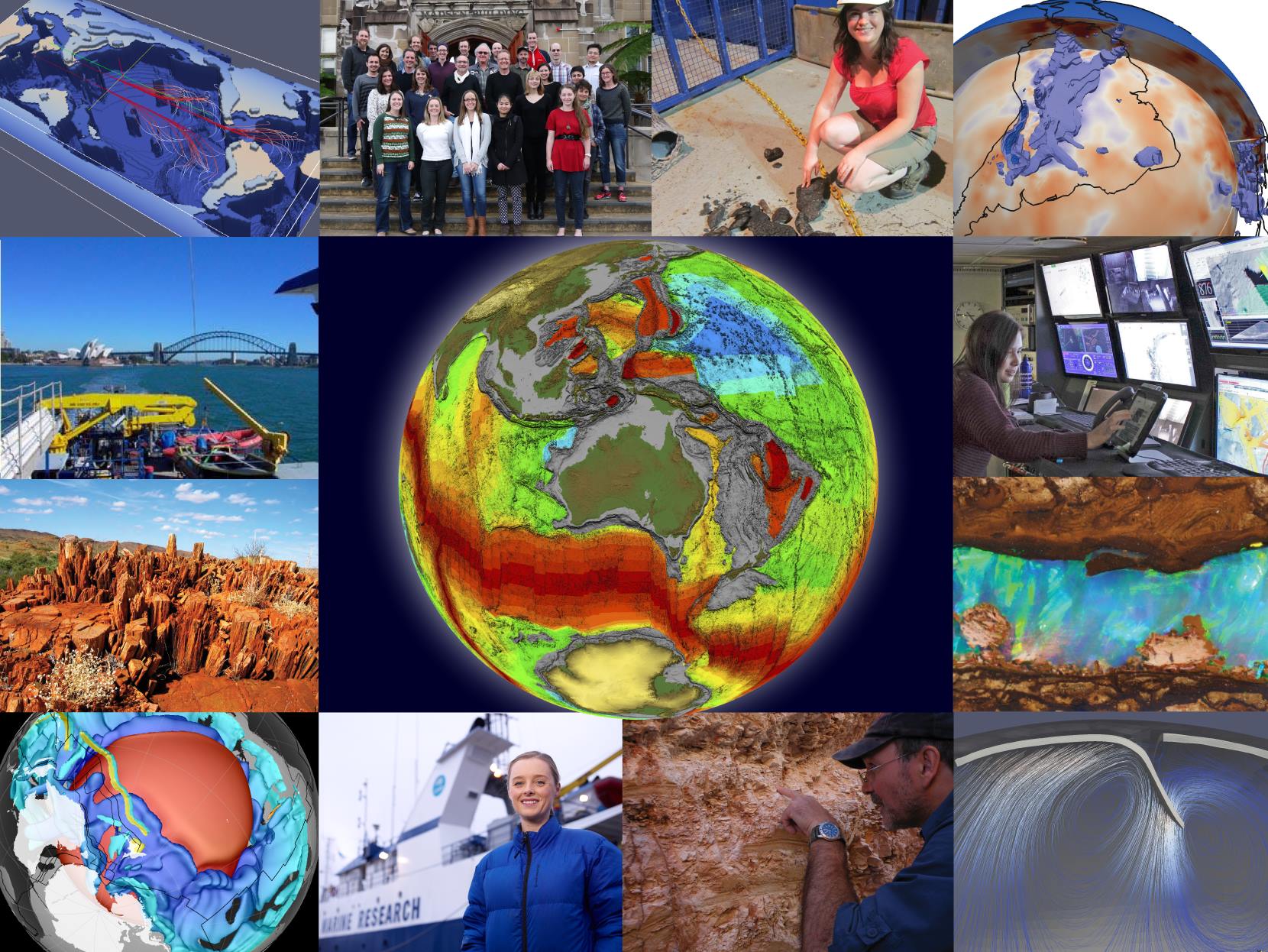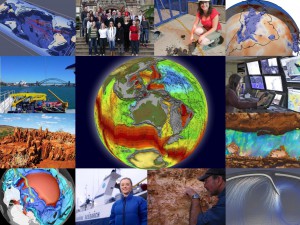The EarthByte Research Group pursues geodata synthesis through space and time, building a deep-time virtual Earth. The group is well-known for open innovation via collaborative software development, “big data” analysis and its global open access digital data collections. The EarthByters lead the collaborative development of open-source virtual Earth software, including GPlates, pyGPlates, GPlately, the GPlates web service and portal, the GPlates App, pyBacktrack, and numerous machine learning workflows for spatial and spatio-temporal data and model analysis (see EarthByte GitHub repository). The GPlates software family enables the interactive manipulation and visualisation of plate-tectonic reconstructions, seismic tomography, geodynamic model outputs and other geodata through geological time. The GPlates Web Service delivers GPlates functionalities over the Internet as a service(SaaS).Fundamental research aims include understanding solid Earth evolution and the history if surface environments and climate, while a major applied research focus is critical mineral exploration and the energy transition.
The group is leading a range of research projects, including the STELLAR project in partnership with BHP (Muller, Seton, Zahirovic and Salles), aimed at further developing spatio-temporal data analysis for exploration, the PLATO Linkage project in partnership with Lithodat (Muller, Seton, and Zahirovic), three ARC Discovery projects on geodynamic modelling for mineral exploration (Rey, Chatzaras), volcanism east of Australia (Seton), as well as two ARC Fellowships, one DECRA (Zahirovic) on understanding the geological history of carbonate platforms through time and and one early career industry fellowship (Wright) on porphyry copper exploration and paleo-elevation reconstructions.
![]()


